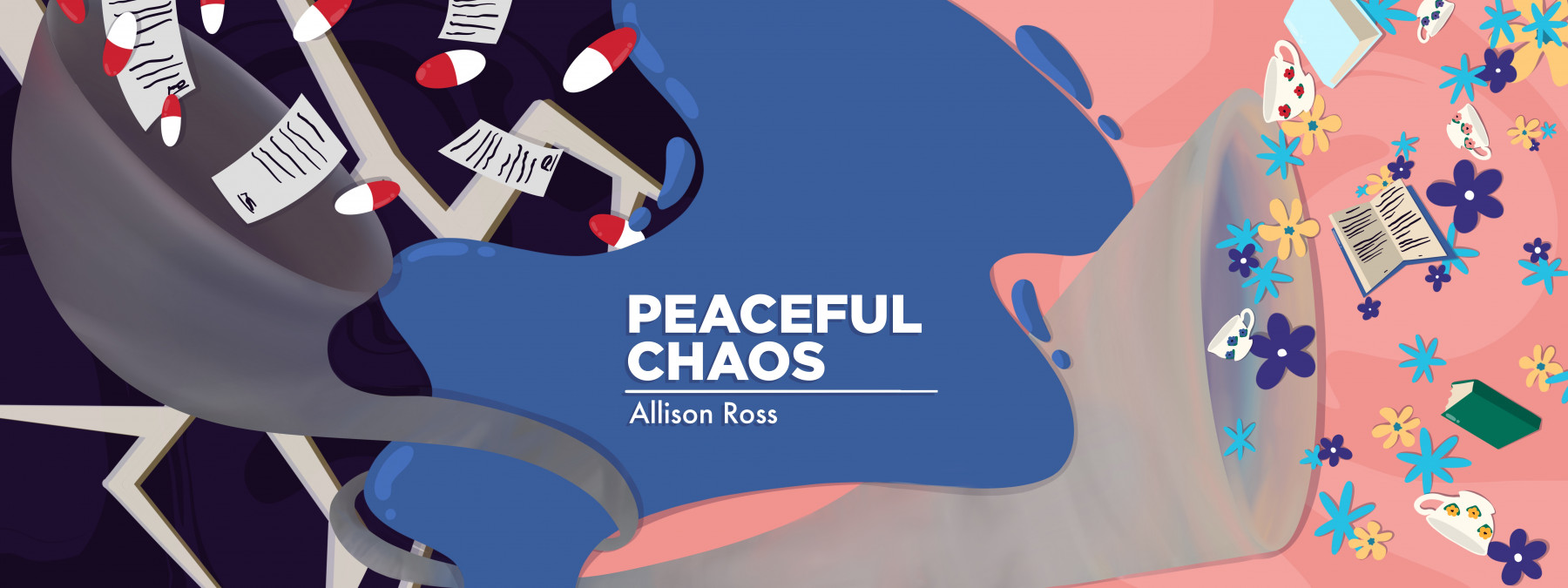Being Sick Has Taught Me Empathy
Written by |

It’s an experience every pet owner fears: Our 8-month-old German shepherd needed to be rushed to the emergency vet. Luckily, four hours and several hundred dollars later, he was sent home with some meds and pronounced just fine.
While my husband and I were overjoyed that our beloved pup was going to be OK, being at the pet hospital was traumatic. It wasn’t like being at a regular vet’s office. Most of the animals we saw were very sick or needed to be put to sleep. Many of the 15 or so pet owners we saw come through the door left the hospital in tears. We found ourselves crying too for what they were going through.
Seeing so much sadness made me reflect on how much I’ve developed emotionally over the years, particularly since my own illness surfaced.
I was diagnosed with granulomatosis with polyangiitis, a type of ANCA vasculitis, in 2005, more than half my life ago. In 2013, my rheumatologist pronounced me in remission, but autoimmune disorders are unpredictable. We don’t always know what triggers them, although stress and environmental factors play a role.
Having a chronic condition can leave you feeling like you have little control over your life, and it requires no small amount of resilience and emotional strength to cope. It has taught me to feel empathy for those in the vasculitis community. The more we can understand one another, the better we can support one another.
Empathy means being able to let go of myself and my personal concerns and to support someone else in their struggles.
Maybe it’s in my stars
Those of us born under the constellation Aquarius aren’t exactly known for deep feelings. Instead, we tend to be brainy, ruthless, and impulsive, sometimes at the expense of our emotional intelligence. Empathy is not my strong suit and I have to work hard to cultivate it.
But I do understood what people can feel when they receive a disease diagnosis. They can experience a lot of different emotions, and they have to come to accept that not every day will be a good day. They have to be willing to give voice to the negative as well as the positive. And they have to learn to tell themselves to take one step at a time, that they’re going to be all right.
After almost 18 years of living with vasculitis, I understand it’s important to show compassion toward those who struggle with the same issues I have struggled with. It’s easy to feel something when you’ve been there or can visualize yourself there. Though having empathy means taking on someone else’s hardship, it can draw us closer to that person and help us form a meaningful connection. From it we can both move forward.
Developing empathy for others also encourages kindness to ourselves. If we can feel the pain and hardship others go through, we may be more ready to accept our own limitations. Maybe we can even learn to love ourselves unconditionally. Just maybe.
***
Note: ANCA Vasculitis News is strictly a news and information website about the disease. It does not provide medical advice, diagnosis, or treatment. This content is not intended to be a substitute for professional medical advice, diagnosis, or treatment. Always seek the advice of your physician or other qualified health provider with any questions you may have regarding a medical condition. Never disregard professional medical advice or delay in seeking it because of something you have read on this website. The opinions expressed in this column are not those of ANCA Vasculitis News or its parent company, Bionews, and are intended to spark discussion about issues pertaining to ANCA vasculitis.







John Banks
What a great article, sums my situation up completely. Thank you for letting me know your xperience.
Marguerite Wilkins
I am an empath but am somewhat lost at the moment on my recent diagnosis (summer 2021) and living in Spain. The hospital I am being treated at only sees 1 or 2 cases a year of vasculitis so peer support etc very limited. I have small cell vasculitis ANCA MPO + and half way through first few weeks treatment with presnidona and Rixutab infusions. Now have several known side effects of Presnidona and wondered if there is any support in UK for me to communicate experiences with. Thank you
Kathleen Banks
My husband was iagnosed with MPO ANCA VASCULITIS in December 2020. I demanded a blood test for him from our local g.p and they gave me a date in JANUARY 2021 so I created he'll and the blood test was done the next evening at a clinic a few miles away.
When the results came back, my husband's kidney function had dropped from 85% to 13%.
Luckily, he was immediately sent to Aintree University Hospital, put on cortisone infusion, had scans, xrays and a kidney biopsy. He narrowly missed dialysis by days and after 10 sessions of chemotherapy treatment to get him immuno-suppressed + over 20 tablets a day, his kidney function is back to 30% and his critical anaemia is within normal limits. He is still far from well, so tired, no strength or energy, but I am grateful for every day he is still here with me. Kathleen Banks.
Through your site, perhaps you could forward to her my email address, it is very frightening and I would have loved to have someone to correspond with.